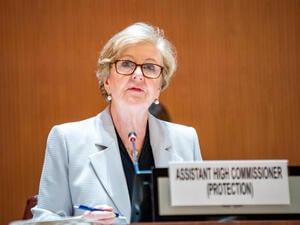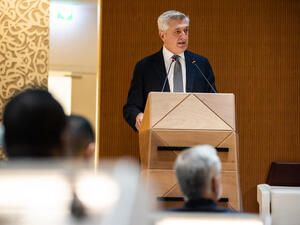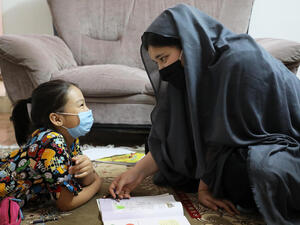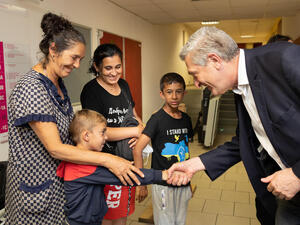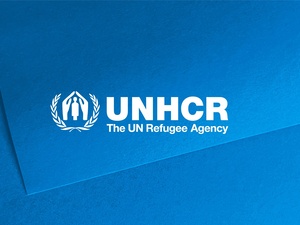Tanzania grants citizenship to 162,000 Burundian refugees in historic decision
Tanzania grants citizenship to 162,000 Burundian refugees in historic decision

A group of Burundian refugees received their citizenship certificates from President Kikwete.
GENEVA, October 17, (UNHCR) The UN refugee agency has welcomed Tanzania's decision to grant citizenship to 162,156 former Burundian refugees, marking the largest group in UNHCR's history to which naturalisation has been offered by a country of first asylum as a solution to decades in exile.
Tanzanian authorities also started the naturalisation process for a further 40,000 people. In total some 200,000 people are expected to be granted citizenship, including some of the children of the Burundian refugees, who fled their country amid ethnic conflict in 1972.
Inaugurating the process, 18 of the former refugees in western Tanzania's Tabora region, received their citizenship certificates personally from President Jakaya Kikwete on Tuesday. In total some 110 certificates were handed out during the first two days of the process
Symbolically, the naturalization ceremony took place on Nyerere Day, as the nation marked the 15th Anniversary of the death of its founding father and 1983 Nansen Refugee Award laureate, the late Mwalimu Julius Nyerere.
UNHCR Representative, Joyce Mends-Cole, commended Tanzania as a model in the search for solutions for refugees and as a country where the institution of asylum is preserved and respected.
"Nyerere famously said that no African should be a refugee in another African country and his successors have continued an enlightened and generous policy towards refugees," she said.
In December 2007, the Government of Tanzania announced its willingness to offer naturalisation to the former Burundian refugees in an effort to end protracted refugee situations in the country.
The refugees have historically lived in three settlement areas in Tabora and Katavi region in western Tanzania since 1972 and had become largely self-supporting and taxpaying members of society. In addition to subsistence crops, the settlements also produced tobacco and coffee for export, contributing to the development of the remote regions.
But while more than 162,000 Burundians were found eligible for naturalization, an earlier initiative, which involved relocating them to different regions of Tanzania, ran into obstacles and was halted after only some 750 former refugees received their citizenship certificates in 2010.
Halting the process resulted in great uncertainty for the refugees: many stopped investing in agricultural activities and enrolling their children in secondary schools, as they were unsure of their status and whether they could stay in the settlements or not.
At this year's meeting of UNHCR's Executive Committee, the Government of Tanzania announced that it had resolved the nearly four-year long hiatus in the naturalization process for the 1972 Burundians. It also announced that the new citizens would be allowed to remain in the settlements, where they can exercise their rights as Tanzanian citizens, or move to any other part of the country if they wished to do so.
Tanzania previously granted naturalization to some 32,000 Rwandan refugees in 1982 and in February of this year it concluded the naturalization of some 3,000 Somali Bantu refugees (ethnic Wazigua from Tanzania), who had fled Somalia in 1991, after the fall of the Siad Barre regime.
Tanzania is also host to approximately 60,000 refugees from the Democratic Republic of the Congo, a large number of whom will be resettled to the U.S. over the next five years.

